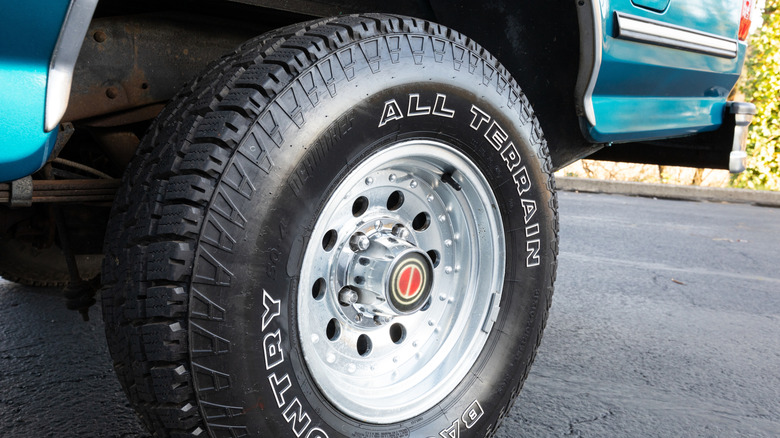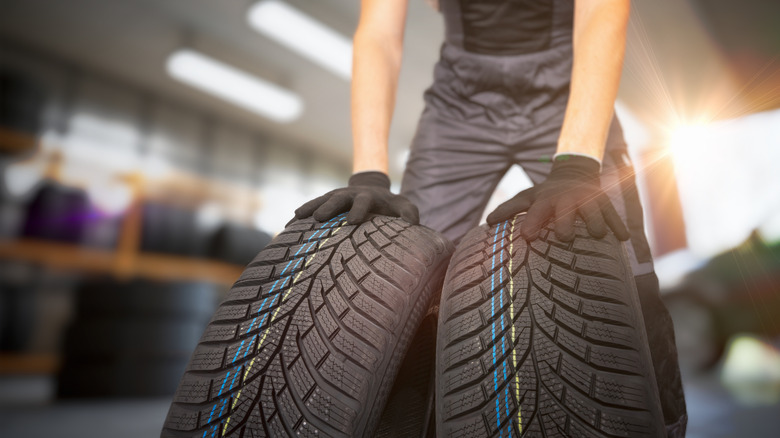You Might Want To Think Twice About Using All-Terrain Tires For Highway Driving
As the saying goes, "a jack of all trades is a master of none" — and that sentiment fits perfectly in the world of tires. Accordingly, all-season tires can grip decently in both summer and snow but will never do as good a job as ultra-high-performance or winter tires. On the other hand, purpose-built tires, like off-road tires, tend to outperform general-purpose ones in extreme conditions but fall short once taken outside of said environments. All-terrain (A/T) tires fit somewhere between all-season and off-road tires. This inherently means they compromise on both ends to be decent.
According to performance testing, A/T tires have longer stopping distances compared to highway all-season tires, especially in wet conditions. All-terrain tires affect MPG numbers since a more aggressive tread increases the rolling resistance of a tire. Consumer Reports also found that road-focused tires handle better, have more traction, and are quieter, both in wet and dry conditions. This is why you might want to think twice about using A/T tires for highway driving. Here is everything you need to know about using A/T tires — what makes them shine and where they fall short.
All-terrain tires are not perfect for the highway
Some of the greatest benefits of A/T tires include versatility, durability, and safety. This translates into a design intended to cope with sand, rocks, grass, dirt, and the usual paved road. Because A/T tires deal well with rougher terrain, they are able to endure heavier loads and are usually more puncture-resistant. This makes them safer in extreme environments because a more aggressive tread pattern also leads to more traction off-road.
All of these factors are the very opposite of what makes a superior cruising tire. Due to a more aggressive tread pattern, A/T tires are noisier on the highway and use more fuel. By contrast, road-focused tires benefit from smoother tread patterns, but this also makes them less capable off-road. Ultimately, A/T tires can easily handle highway driving, but they're jacks of all trades — while road-focused options, such as touring tires and performance tires, remain the true masters of that domain.
Longevity of all-terrain tires
An A/T tire is able to last, on average, up to 50,000 miles, while highway tires last the longest, up to 60,000 miles. This is because A/T tires tend to use a softer compound compared to highway tires, which is also why dedicated mud tires last the shortest. Factors such as the quality of the tire, the road surface, aggressive driving, and tire maintenance can further increase or decrease the lifespan. Neglecting timely tire rotations, proper alignment, and correct tire pressure can significantly shorten the lifespan of any tire, regardless of type or driving surface.
For example, studies have shown that for every 1 psi drop in tire pressure, tire life is shortened by about 1.78%. This is also why using the correct tire type for the environment is crucial when wanting to squeeze the maximum out of any tire. Since highway driving implies many miles of driving, highway tires are designed specifically to be able to last the longest in that environment. This is also why the longest-lasting car tires in general are not A/T tires but rather all-season tires designed for that specific use.


